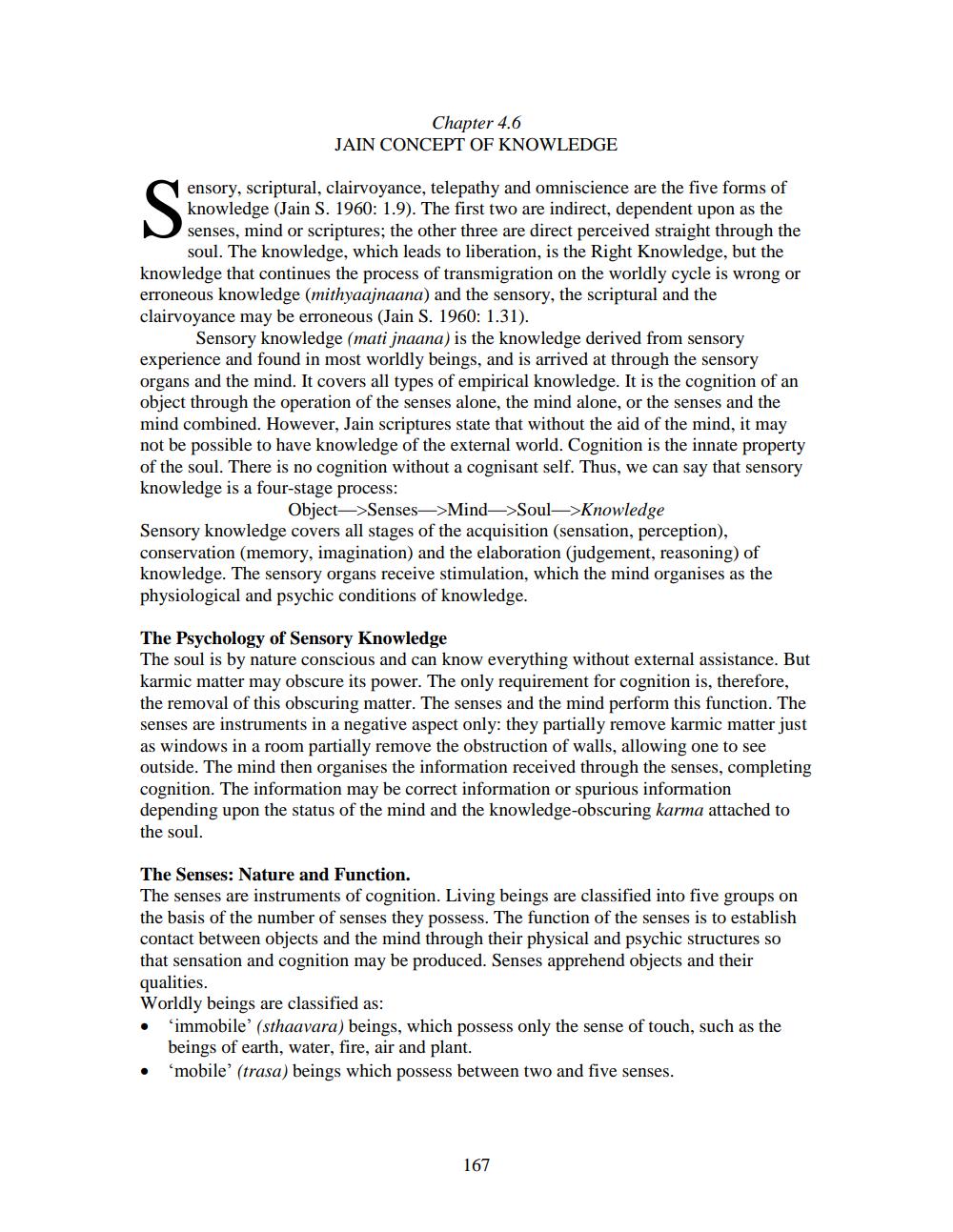________________
Chapter 4.6 JAIN CONCEPT OF KNOWLEDGE
S
ensory, scriptural, clairvoyance, telepathy and omniscience are the five forms of knowledge (Jain S. 1960: 1.9). The first two are indirect, dependent upon as the senses, mind or scriptures; the other three are direct perceived straight through the soul. The knowledge, which leads to liberation, is the Right Knowledge, but the knowledge that continues the process of transmigration on the worldly cycle is wrong or erroneous knowledge (mithyaajnaana) and the sensory, the scriptural and the clairvoyance may be erroneous (Jain S. 1960: 1.31).
Sensory knowledge (mati jnaana) is the knowledge derived from sensory experience and found in most worldly beings, and is arrived at through the sensory organs and the mind. It covers all types of empirical knowledge. It is the cognition of an object through the operation of the senses alone, the mind alone, or the senses and the mind combined. However, Jain scriptures state that without the aid of the mind, it may not be possible to have knowledge of the external world. Cognition is the innate property of the soul. There is no cognition without a cognisant self. Thus, we can say that sensory knowledge is a four-stage process:
Object->Senses->Mind->Soul->Knowledge
Sensory knowledge covers all stages of the acquisition (sensation, perception), conservation (memory, imagination) and the elaboration (judgement, reasoning) of knowledge. The sensory organs receive stimulation, which the mind organises as the physiological and psychic conditions of knowledge.
The Psychology of Sensory Knowledge
The soul is by nature conscious and can know everything without external assistance. But karmic matter may obscure its power. The only requirement for cognition is, therefore, the removal of this obscuring matter. The senses and the mind perform this function. The senses are instruments in a negative aspect only: they partially remove karmic matter just as windows in a room partially remove the obstruction of walls, allowing one to see outside. The mind then organises the information received through the senses, completing cognition. The information may be correct information or spurious information depending upon the status of the mind and the knowledge-obscuring karma attached to the soul.
The Senses: Nature and Function.
The senses are instruments of cognition. Living beings are classified into five groups on the basis of the number of senses they possess. The function of the senses is to establish contact between objects and the mind through their physical and psychic structures so that sensation and cognition may be produced. Senses apprehend objects and their qualities.
Worldly beings are classified as:
'immobile' (sthaavara) beings, which possess only the sense of touch, such as the beings of earth, water, fire, air and plant.
• 'mobile' (trasa) beings which possess between two and five senses.
167




